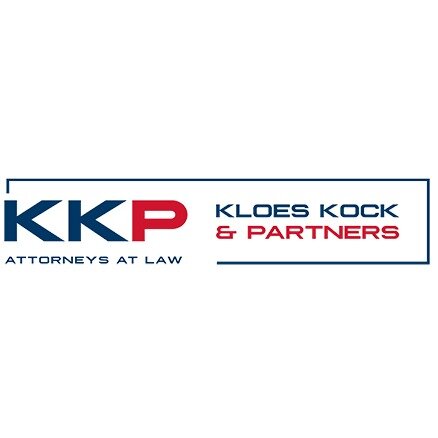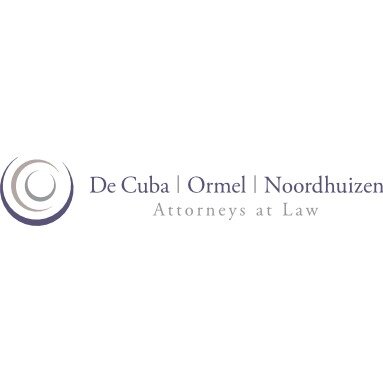Best Financial Services Regulation Lawyers in Aruba
Share your needs with us, get contacted by law firms.
Free. Takes 2 min.
Or refine your search by selecting a city:
List of the best lawyers in Aruba
About Financial Services Regulation Law in Aruba
Financial Services Regulation in Aruba is governed by a framework of laws, guidelines, and regulatory bodies designed to ensure the integrity, transparency, and efficiency of financial markets and services. The Central Bank of Aruba (CBA) plays a crucial role in overseeing financial institutions, maintaining monetary stability, and fostering financial system integrity. This regulatory framework encompasses banking, insurance, investment services, and other financial sectors, aligning with international standards to combat financial crimes such as money laundering and fraud.
Why You May Need a Lawyer
Legal assistance in Financial Services Regulation may become crucial in various situations. Businesses seeking to establish a financial institution in Aruba must navigate complex regulatory requirements, for which legal expertise is essential. Compliance issues, such as adhering to anti-money laundering regulations and reporting obligations, often necessitate professional legal guidance. In cases of merger, acquisition, or restructuring within the financial services sector, legal consultation ensures adherence to the regulatory framework. Individuals facing allegations of financial misconduct would also need legal representation to navigate the legal processes and protect their rights.
Local Laws Overview
The Financial Services Regulation landscape in Aruba is shaped by several key laws and regulations. The State Ordinance on the Supervision of the Credit System regulates banks and lending institutions, establishing requirements for licensing and operational standards. The State Ordinance on the Supervision of the Insurance Business provides the framework for insurance companies, ensuring their solvency and compliance. Further, the Anti-Money Laundering and Combatting the Financing of Terrorism (AML/CFT) regulations impose stringent compliance obligations on financial institutions to detect, prevent, and report suspicious activities. Collectively, these laws help maintain a robust and secure financial sector.
Frequently Asked Questions
What is the role of the Central Bank of Aruba in financial regulation?
The Central Bank of Aruba is the primary regulatory authority overseeing the financial sector. It ensures financial stability, supervises financial institutions, and enforces monetary policy to maintain the integrity of Aruba's financial system.
How does the licensing process work for financial institutions?
Financial institutions must apply for a license from the Central Bank of Aruba, demonstrating their compliance with relevant regulations, capital adequacy, and risk management standards. The process requires detailed documentation and is subject to rigorous evaluation.
What are the compliance obligations for banks in Aruba?
Banks in Aruba must adhere to numerous compliance obligations, including maintaining adequate capital reserves, implementing anti-money laundering measures, and ensuring transparent reporting practices to regulatory bodies.
How can individuals protect themselves from financial fraud?
Individuals should be cautious of unusual transactions, regularly monitor financial statements, and promptly report suspicious activities to their financial institution and relevant authorities.
What penalties exist for non-compliance with financial regulations?
Penalties for non-compliance can include fines, revocation of licenses, or other legal actions imposed by regulatory bodies. Financial institutions must adhere strictly to regulations to avoid such consequences.
Are foreign investors subject to the same regulations as local entities?
Yes, foreign investors must comply with the same financial regulations and licensing requirements as local entities when operating within Aruba's financial services sector.
What is the process for resolving disputes in financial services?
Disputes in financial services are typically resolved through negotiations, mediation, or arbitration. If necessary, cases can be escalated to the court system for legal adjudication.
Can I represent myself in regulatory compliance matters?
While self-representation is technically possible, it is not recommended due to the complexity of regulatory compliance laws. Legal representation ensures thorough understanding and adherence to all regulatory requirements.
What should I do if I suspect money laundering activities?
If you suspect money laundering, report it immediately to your financial institution and the Financial Intelligence Unit (FIU) in Aruba, which handles such investigations.
Are there any exemptions from financial regulations?
Exemptions may be applicable in certain situations or for specific entities as delineated under Aruban law. Legal counsel can provide advice on eligibility for any exemptions.
Additional Resources
For further assistance, you can contact the Central Bank of Aruba, which provides extensive resources and guidance on financial regulations. The Financial Intelligence Unit (FIU) offers information on handling and reporting suspicious financial activities. Consulting with specialized law firms experienced in financial services regulation can also be beneficial.
Next Steps
If you need legal assistance, start by identifying firms and attorneys with experience in financial services regulation. Schedule consultations to discuss your specific needs, and ensure you are comfortable with their expertise and approach. It may also be advisable to consult multiple sources or seek recommendations to select the most suitable legal representation for your situation.
Lawzana helps you find the best lawyers and law firms in Aruba through a curated and pre-screened list of qualified legal professionals. Our platform offers rankings and detailed profiles of attorneys and law firms, allowing you to compare based on practice areas, including Financial Services Regulation, experience, and client feedback.
Each profile includes a description of the firm's areas of practice, client reviews, team members and partners, year of establishment, spoken languages, office locations, contact information, social media presence, and any published articles or resources. Most firms on our platform speak English and are experienced in both local and international legal matters.
Get a quote from top-rated law firms in Aruba — quickly, securely, and without unnecessary hassle.
Disclaimer:
The information provided on this page is for general informational purposes only and does not constitute legal advice. While we strive to ensure the accuracy and relevance of the content, legal information may change over time, and interpretations of the law can vary. You should always consult with a qualified legal professional for advice specific to your situation.
We disclaim all liability for actions taken or not taken based on the content of this page. If you believe any information is incorrect or outdated, please contact us, and we will review and update it where appropriate.
Browse financial services regulation law firms by city in Aruba
Refine your search by selecting a city.











